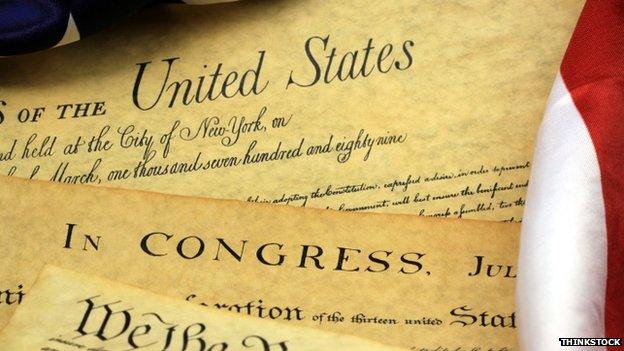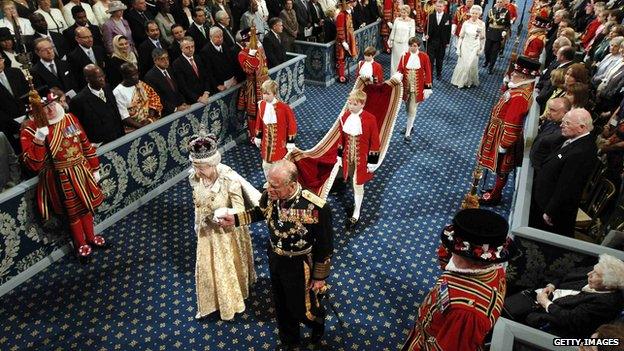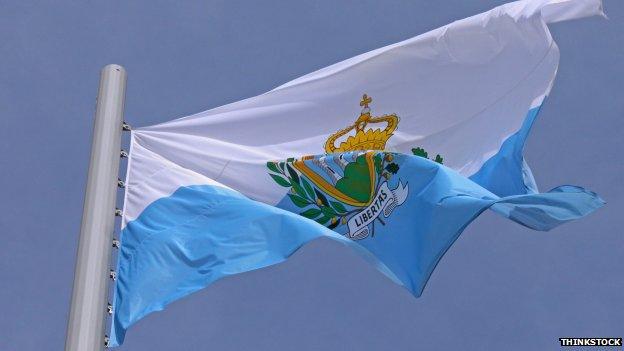Scottish independence: What's a constitution and should it be written?
- Published
The Scottish government wants a written constitution post-independence and it plans to ask the people of Scotland what their views are this summer. But what is a constitution all about and why should it be in writing?
What is a constitution?

A written constitution outlines the rights of citizens and the role of government
In short, it's a declaration of what a country stands for, and usually outlines the rights of citizens and the role of government.
The UK is in a small club when it comes to written constitutions - only two other states don't have one: New Zealand and Israel. In the last 25 years more than 20 countries have become independent sovereign territories, and each one has written a constitution. India has the world's longest, containing 117,369 words in its English translation.

Why doesn't the UK have a written constitution?

The UK's "unwritten" constitution recognises the primacy of parliament, which is opened by the Queen every year in a state ceremony.
The reasons are linked to the UK's piecemeal approach to democracy, which has evolved over hundreds of years. Under the UK's "unwritten" system, parliament represents the people and is not bound by other laws or statutes.
The Magna Carta, written in England in 1215, is the closest thing to a written constitution. This document has had a huge influence on the UK's parliamentary democracy, and the formation of written constitutions around the world.
Some say not having a written constitution is advantageous, as it offers greater flexibility to how institutions such as government, the judiciary and legislature can be reformed. Critics point out that some of the world's most repressive regimes have had written constitutions.

What would Scotland's written constitution say?

The interim Scottish constitution will be published ahead of the Scottish Parliament's summer recess
In its White Paper for Independence, external, the Scottish government said it would create a constitutional convention with people and organisations from all walks of Scottish life having the opportunity to participate.
It says the European Convention of Human Rights, external, which the UK is currently signed up to, would be embedded in the constitution. The paper also proposes a number of other rights around equality of opportunity, public services, healthcare and welfare, education, employment, rights for children and the military. A ban on nuclear weapons being based in Scotland is also proposed, as is a legal obligation to work for nuclear disarmament.
A draft interim constitution, to be published for consultation over the summer, will set out how an independent Scotland could prepare its final constitution in the event of a "Yes" vote.

Which country has the oldest constitution?

San Marino is believed to have the world's oldest written constitution
San Marino, which has a population of just over 30,000, is thought to have the oldest written constitution, dating back to 1600. It was written in Latin and has six books covering subjects such criminal law, civil law, sanitation, food hygiene and roads. In 1974, a declaration of rights for citizens was added.

Which country has the newest constitution?

People in South Sudan's capital, Juba, celebrate the country's independence in 2011
South Sudan - the world's newest state, which seceded from Sudan in 2011 - has a constitution which came into force on the country's independence day, 9 July 2011. The fledgling country had been fighting for independence since the 1960s, and held a referendum in January 2011.